The struggle of the people of Cu Chi district during the resistance war against the US is long gone, but the memories of the time when "hearts became trenches, eyes became stars, hands became swords" are still deeply imprinted in every veteran soldier and guerrilla.
There were girls in their twenties who did not directly carry guns to the battlefield, but faced with the prospect of losing their country and their homes, they disregarded the danger and rushed into the "tiger's den", performing reconnaissance missions, gathering information, contributing to battles that made the enemy confused and terrified...
One afternoon in April, Dan Tri reporters went to the house of Ms. Phuong Thanh (real name Tran Thi Phuong Thanh, also known as Ut Bot) in an alley on Go Dau Street (Tan Phu District).
Born in 1951 into a working-class family with a strong revolutionary tradition in Tan An Hoi commune, Ms. Thanh is one of the women who contributed to writing the legend of "the flowers of Cu Chi steel land".
Over a cup of green tea, a 74-year-old woman flips through memories from more than 50 years ago…
As a child, Ms. Thanh loved the performances of the art troupe on the land under the forest canopy. At the age of 14, seeing her homeland being trampled by bombs and bullets, she volunteered to join the guerrilla team of Tan An Hoi commune, regularly following the people into strategic hamlets, grasping the enemy situation, and providing information to the base.
In 1968, the girl Phuong Thanh enlisted in the Cu Chi Military Intelligence Department (B14, under the Cu Chi District Team). Thanks to her familiarity with the terrain, she was assigned to work as a secret agent (scout, spy), operating legally in the enemy-occupied area.
After Tet Mau Than 1968, the revolutionary forces in Cu Chi had many changes but still maintained a stalemate with the enemy. Our military bases were actively discussing ways to organize attacks on enemy hideouts with the spirit of "fighting both at the front line and in the enemy's rear, fighting everywhere, making the enemy confused and passive".
At that time, the 25th "Tropical Lightning" Division of the US was stationed at Dong Du base (the enemy called it Cu Chi base), an area adjacent to the Ben Dinh tunnel system, creating a siege and control to prevent revolutionary forces in Cu Chi from entering Saigon.
This is also where the 25th Division departed for "search and destroy" operations in Cu Chi, Binh Duong ... In addition, the base also arranged areas such as parking lots, logistics areas and clubs to serve American officers and soldiers for recreation and entertainment after each operation.
That year, 17-year-old Phuong Thanh, with a pretty appearance and skillful manner, was recruited by the lieutenant managing the warehouse to work as a receptionist at the club in Dong Du base.
One time, the organization assigned her the mission of "attacking the enemy's logistics area". While waiting for the opportunity, she was trained by special forces officers of the Saigon - Gia Dinh Military Region on how to install detonators, time mines and situations that could arise.
"We planned the battle plan for many weeks. Initially, I worked as a cleaner in the club, scouted the situation, and learned the US soldiers' operating rules. This club was near the water storage, fast food counter, and had separate changing rooms for women. However, the enemy was not always concentrated here, so we needed to find the time when the US soldiers were most concentrated," she said.
The design of Dong Du base is very difficult to access because there are up to 5 entrances. From the outside, the "den" of American soldiers is protected by a system of fences and obstacles up to several dozen meters thick. Inside the fence are high earthen ramparts and a dense system of watchtowers.
Inside the base were functional subdivisions, complete with an airport, trenches and combat fortifications. The warehouse had only one entrance and was also strictly controlled. At each gate, the enemy stationed two soldiers to guard. On the outer perimeter, the US military patrolled continuously.
Every day, when going to and from work, the cleaning team serving in the base had to line up to be counted and searched by the American soldiers. But among the hundreds of civilians who, for a living, went to Dong Du every day to serve the American soldiers, there were still brave "revolutionary eyes and ears" who silently waited for the opportunity to destroy the enemy.
By getting to know each other and asking for information from the lieutenant in charge of the warehouse, Ms. Phuong Thanh accidentally learned that in about a week the club would welcome a group of soldiers and a US song and dance troupe of several hundred people from Saigon to the Dong Du base. Finally, the opportunity was ripe…
In October 1968, the plan to attack the American Club was approved. Phuong Thanh was very nervous because it was the first battle, and also the battle that went deep into the logistics area where many American soldiers were concentrated. According to the plan, she secretly received C4 explosives from the organization's liaison at the parking lot outside the Dong Du base gate.
The important item in this battle was the Guigoz milk can. This is a Nestle milk powder, popular in the South before 1975. The milk can is about 15cm high, and is used by women as a lunch box or to store dry food because it is convenient. In addition, Guigoz cans also helped many people hide cadres, and helped guerrillas and spies effectively camouflage explosives.
Each mine was disguised by Ms. Thanh in a Guigoz milk can, covered with food. Pretending to bring lunch to work, she passed through 5 guard posts, proactively opening the lid of the box for each guard to check. In 3 mornings, she successfully brought 3 mines into the club, hidden in soap boxes. After that, she brought 3 timed mines, hidden near the explosives in the warehouse.
The night before the battle, she walked through the forests adjacent to Provincial Road 8 towards Binh Duong. It was pitch black, the Dong Du base was like an owl’s eye, watching her warily. The atmosphere was strangely quiet, no one knew that an explosion was approaching…
At 10am on October 27, 1968, the cabaret troupe, along with American officers and soldiers, poured into the club one after another. They laughed, sang, and chatted, not noticing that not far away, a waitress sneaked into the warehouse to install the detonator and set the timer. The girl Phuong Thanh that day hid 3 mines at the bottom of the trash can, covered it with a layer of paper, then pushed the trash cans to the designated place.
At 11:30, Mrs. Thanh invited the cleaners to go out for dinner. Sitting at the base of a rubber tree about 300 meters from the club, the 17-year-old female military intelligence soldier was nervous, her stomach churning, her heart pounding. In just 20 minutes, the mine would explode. Looking out at the grounds outside Dong Du base, the American imperial flag fluttered proudly and defiantly.
At exactly 11:40, a loud explosion rang out from the club area. The powerful mines blew up the dome and walls, turning the enemy's entertainment area into rubble in the blink of an eye. Immediately, the Dong Du base sounded alarm bells, and American soldiers from other areas rushed over. Not far away, the group of cleaners were also startled, leaving their meals unfinished, not understanding what had happened.
A few minutes later, in the rubble and huge columns of dust, some American officers were helped out by the ambulance team. The glittering stage where the orchestra had just been dancing and singing became a bloody floor. Screams rang out at the horrifying scene. American military police cars sped up and surrounded the scene. In the sky, three groups of helicopters circled and circled all over Dong Du base.
By that afternoon, rescuers had finally brought out all those trapped inside. In total, the battle had killed and wounded 127 Americans, including 8 colonels.
After the collapse of the American officers' club, the enemy detained all the service staff and janitors in Dong Du base, separated into two areas for interrogation. Unable to get any information, they had to release them at night. In the following days, Ms. Thanh went to work as usual.
The battle caused a great echo in the resistance base area and the temporarily occupied enemy area. The people of Cu Chi increasingly believed in the armed strength and intelligence of the revolutionary organizations.
Meanwhile, the American troops were furious and confused because they could not find the culprit. The American troops thought that the rear base was a safe place, not to be invaded. Unexpectedly, this place was also suddenly attacked, causing much damage.
A few weeks later, spy Phuong Thanh was summoned to the base. Thanks to her special single-line feat, the Party Committee at a higher level approved her admission to the B14 Party cell, along with two awards: the Second Class Military Exploit Medal and the Distinguished American-killing Hero Badge.
Taking a sip of tea, Mrs. Thanh smiled: "The first mission was successful, I'm very excited."
However, the hardships of revolutionary activities quickly came to the female soldier. One day in early 1969, after the local army's attack on Lao Tao post (Trung Lap Thuong commune), B14's insider agent was exposed, and her comrades informed on many people, including Ms. Phuong Thanh.
One day in February 1969, while Ms. Phuong Thanh was cleaning the club, a US military vehicle suddenly arrived. She was handcuffed, thrown into the vehicle and taken to the interrogation room at Dong Du base. They brutally beat her, but everything was just the beginning of her imprisonment. After that, Ms. Phuong Thanh continued to be interrogated in Hau Nghia (present-day Long An ) and then imprisoned in Thu Duc Prison - one of the largest prisons in the South at that time.
"In later years, when I recalled the time I was taken prisoner, I was startled as if I had just experienced a nightmare. The enemy sentenced me to illegally using military weapons, causing disorder and causing serious consequences. However, the battle with the club in Dong Du was not mentioned because there was no concrete evidence. After my prison term expired, they detained me for another 18 months. In total, I spent more than 2 years in prison," Ms. Thanh said sadly.
In Phuong Thanh's memory, during her time in prison, she endured countless beatings and was shocked many times by electric batons. The American soldiers and soldiers of the old regime tortured and extracted information in all kinds of ways to find the organization and the base leaders. However, the physical injuries did not diminish her loyalty to the Party and her love for her homeland and country.
"At that time, I thought my life was over. Some comrades from other military intelligence agencies in Cu Chi were arrested at the same time as me, including Ms. Nam Tranh, who was pregnant. I thought that since I had been pointed out anyway, I should find a way to take the blame for her, helping her escape torture and danger to her life and the life of her unborn child.
However, in a difficult situation, as a scout, I still did not reveal details to reveal tactics, found ways to reduce tasks, and denied the organization's plan," she said.
In June 1971, Phuong Thanh was released by the enemy and returned to Tan An Hoi commune, then was placed under house arrest for a period of time. The situation calmed down, she continued to work as a secret informant for comrade Chin Trung of the B14 organization of the Cu Chi District Team until the day of peace .
Talking about her work as a military intelligence officer after being released from prison, Ms. Thanh said that in order to avoid detection by the enemy, members of the organization had to strictly follow the secret regulations, "walk without a trace, speak without a sound." That day, her meeting place to pick up letters was a banana bush in Xom Chua hamlet.
At night, she secretly went to get the letters left by the courier, memorized the contents of the letters and the tasks that needed to be done. Base meetings took place at night, she crossed deep forests, went down to the tunnels to meet the organization's commanders. If there was any commotion, she went straight to another place, not looking back to ensure safety.
During the Ho Chi Minh campaign in April 1975, soldier Phuong Thanh coordinated with revolutionary forces to mobilize the people of Cu Chi to rise up, contributing to the victory of liberating Cu Chi town on April 29, 1975.
For her contributions to the revolutionary work, she was awarded the First Class Resistance Medal in 1989.
Every year, when the anniversary of the Great Spring Victory of 1975 comes, Ms. Phuong Thanh recalls her youthful years. During meetings with former Cu Chi guerrillas (after peace was restored, the military intelligence department was disbanded, and soldier Phuong Thanh was transferred to the female guerrillas' team), she and the veterans recall many heroic memories of the army and people in the resistance war against the US.
"Many nights, I can't sleep because I think of my comrades who sacrificed their lives, the people who fell without being able to enjoy the nation's moment of glory on this great day of joy," Ms. Phuong Thanh said sadly.
During the conversation, Mrs. Thanh also mentioned her late husband with tearful eyes. She said that she and her husband met each other during the liberation movement in 1975. At that time, the two sides corresponded and got to know each other for a while. After peace was restored, her husband's unit, the Ho Chi Minh City Command, came to Cu Chi to hold a wedding ceremony for her and her husband.
After getting married, Ms. Thanh left the army and worked as a worker at the Viet Thang textile factory. Her partner was a lecturer at a military unit and was a 1/4 disabled veteran due to the effects of the war. The couple worked hard to raise their two sons with their government salaries. After her husband passed away, she lived with her son, daughter-in-law and grandchildren.
"My husband is a good student and a good writer. We have lived together for decades and have always respected each other without any arguments. During the years of economic hardship, my family had no milk for our children. My husband's standard allowance was 12kg of rice per month, but he was still able to save up and raise two children to become good people.
I retired in 2004, my husband passed away due to illness in 2015. In my old age, I have many minor illnesses, I just hope to live healthy because I still worry a lot about my children and grandchildren," Ms. Thanh said.
After seeing Dan Tri reporter off after the conversation, she busied herself drying bread while the sun was still hot. She said she would use this bread to feed the chickens in Cu Chi in a few days.
Occasionally, she and her comrades revisited the once fiery war zones. Walking along the tree-lined streets, the heart of the former scout was filled with pride as her homeland changed dramatically…
Ms. Dang Thi Huong - the last Captain of the Cu Chi Women's Guerrilla Team (1975), who worked in the Cu Chi Military Intelligence Department - said that Ms. Phuong Thanh was one of the brave soldiers of the base, always maintaining the revolutionary spirit, not afraid of hardship.
"The achievements of Ms. Thanh in particular and the Cu Chi Military Intelligence Department in general are proof of the struggle movement of the Cu Chi people at that time. We built the base, grasped the enemy situation, all of us were enthusiastic, skillful, overcame all difficulties, and sacrificed to fulfill our revolutionary mission," Ms. Dang Thi Huong told Dan Tri reporter .
After April 30, 1975, the Cu Chi Military Intelligence Department was dissolved, and Ms. Dang Thi Huong and Ms. Phuong Thanh moved to work in the Cu Chi Women's Guerrilla Team. In 1976, Ms. Dang Thi Huong moved to work in the local police force in Cu Chi, while Ms. Tran Thi Phuong Thanh left the army and started a family in Ho Chi Minh City.
Every time they have a chance to reunite, the veterans together recall heroic memories, arousing pride and deep gratitude towards their comrades and the people of Cu Chi who sacrificed their blood and bones for the independence and freedom of their homeland.
Content: Bich Phuong
Photo: Trinh Nguyen
Design: Duc Binh
Dantri.com.vn
Source: https://dantri.com.vn/doi-song/nu-diep-vien-cai-trang-thanh-tiep-vien-danh-sap-khu-vui-choi-cua-linh-my-20250418162741109.htm


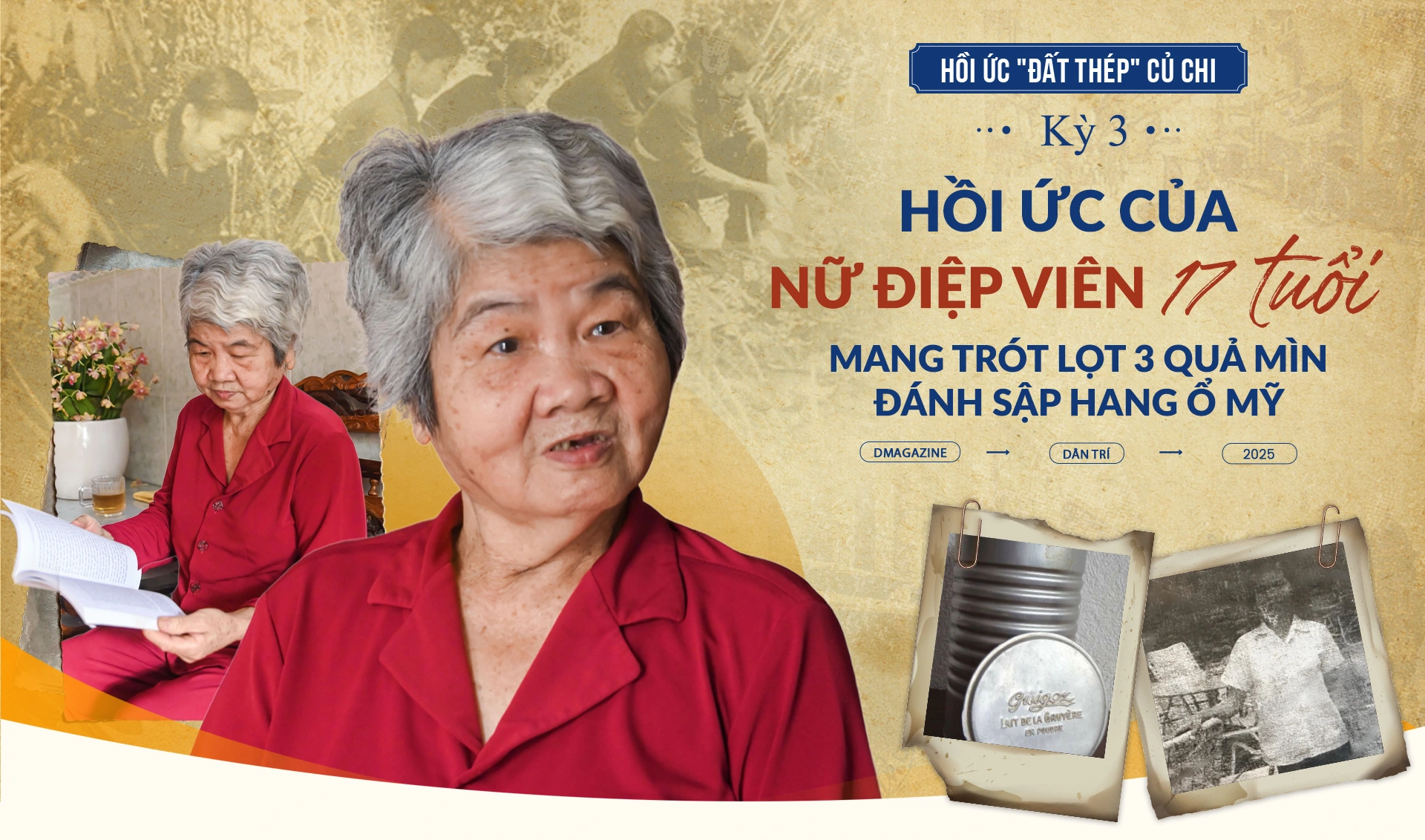
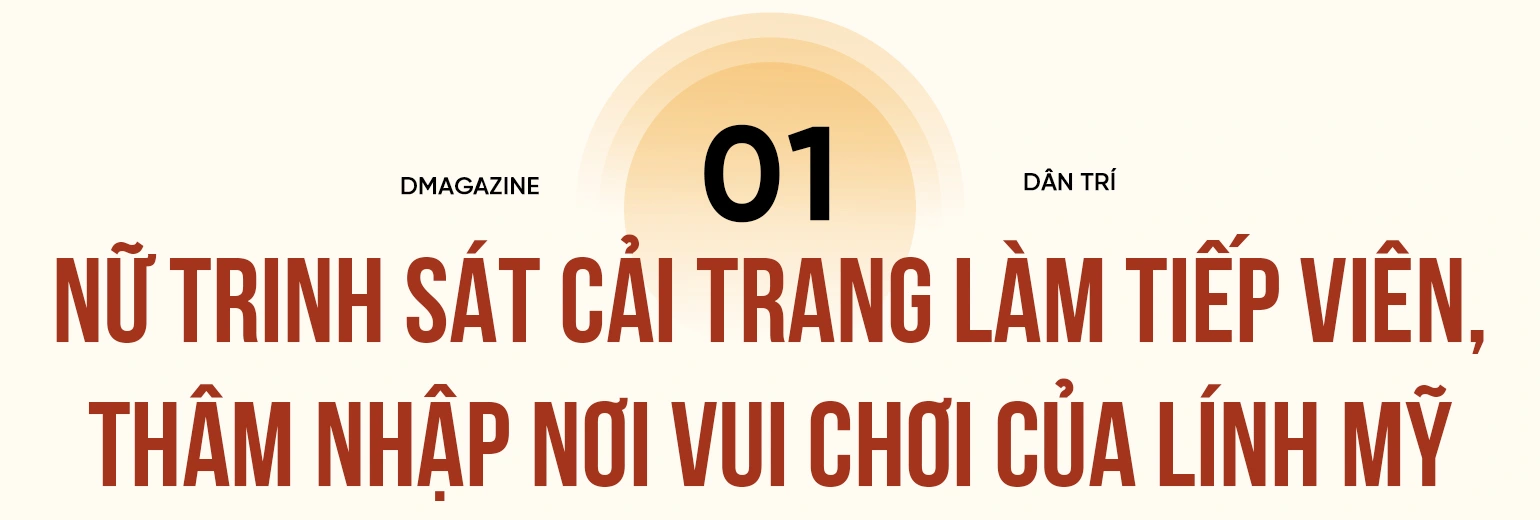
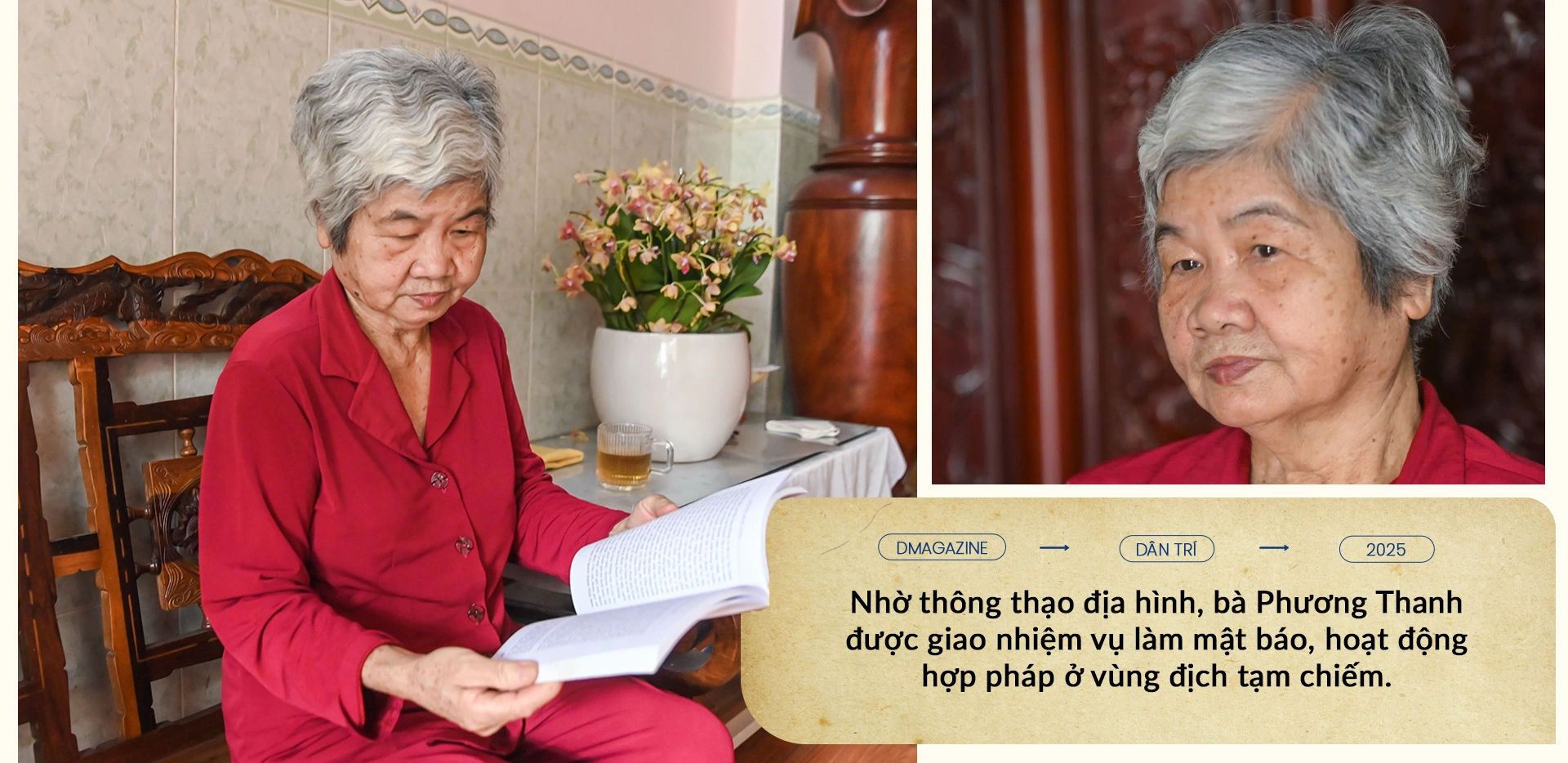
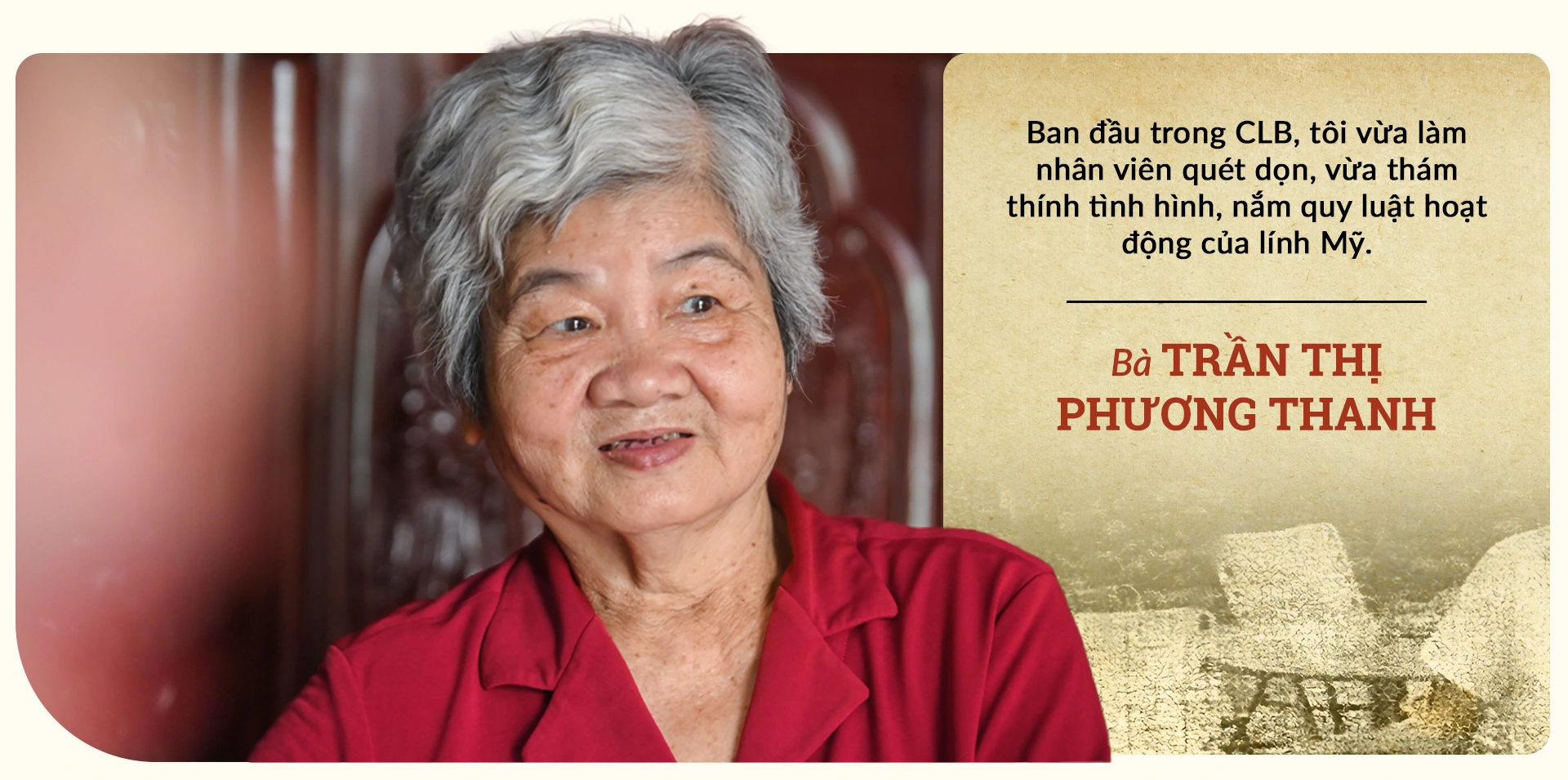

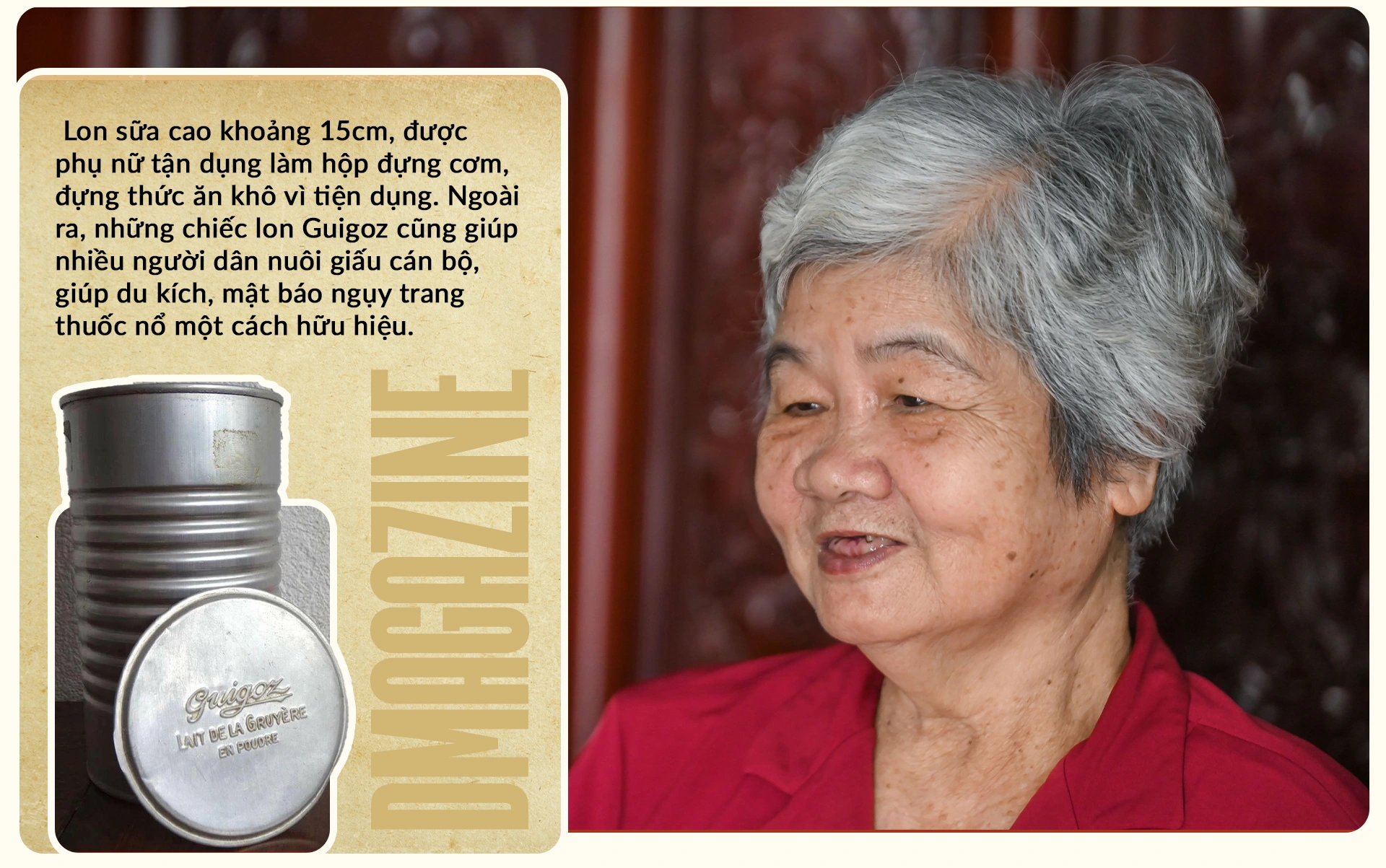
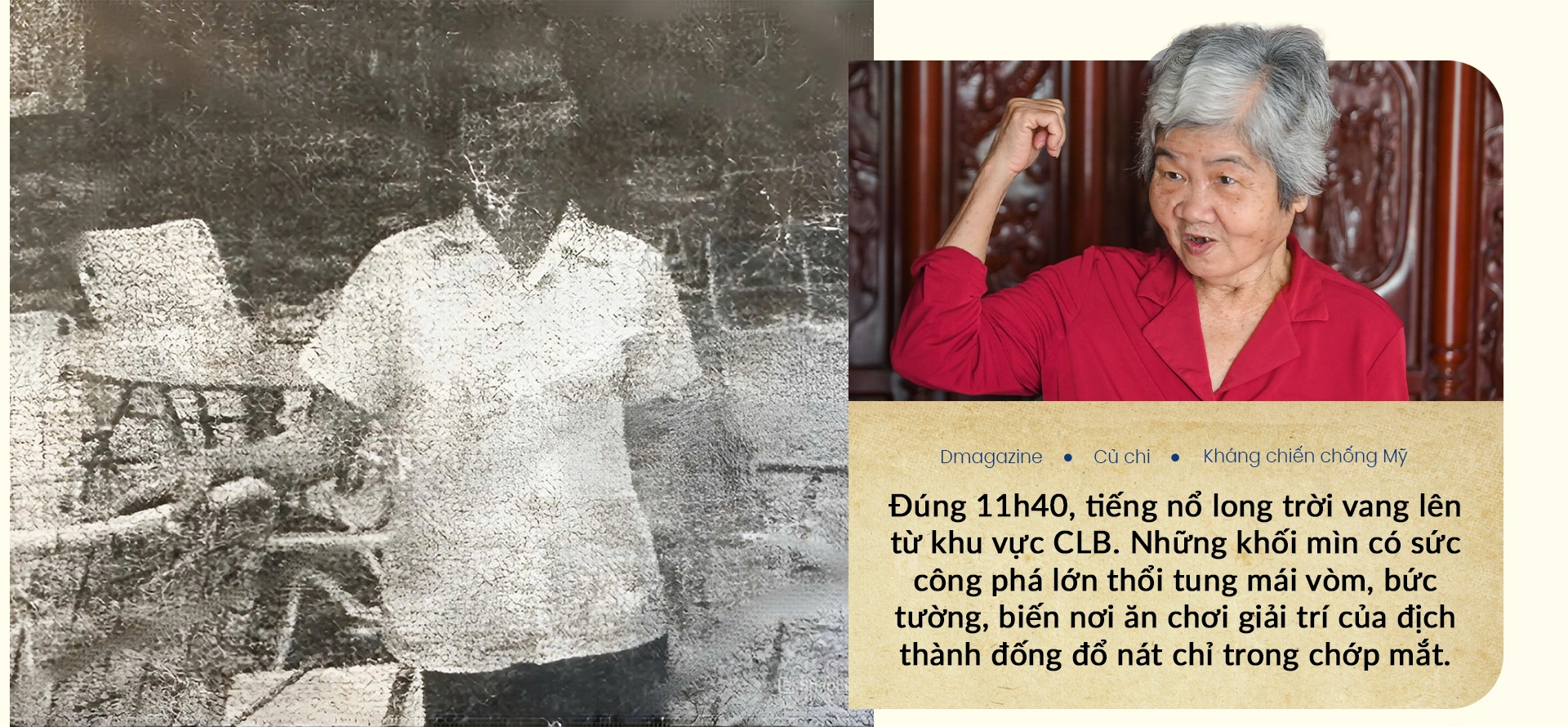
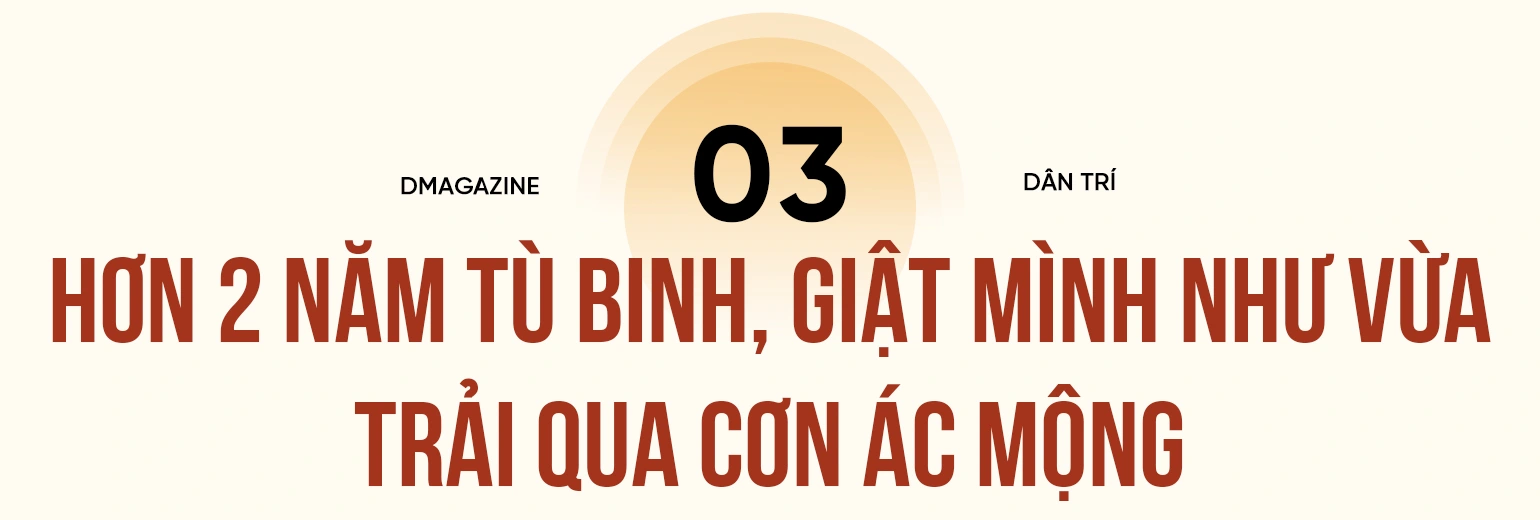
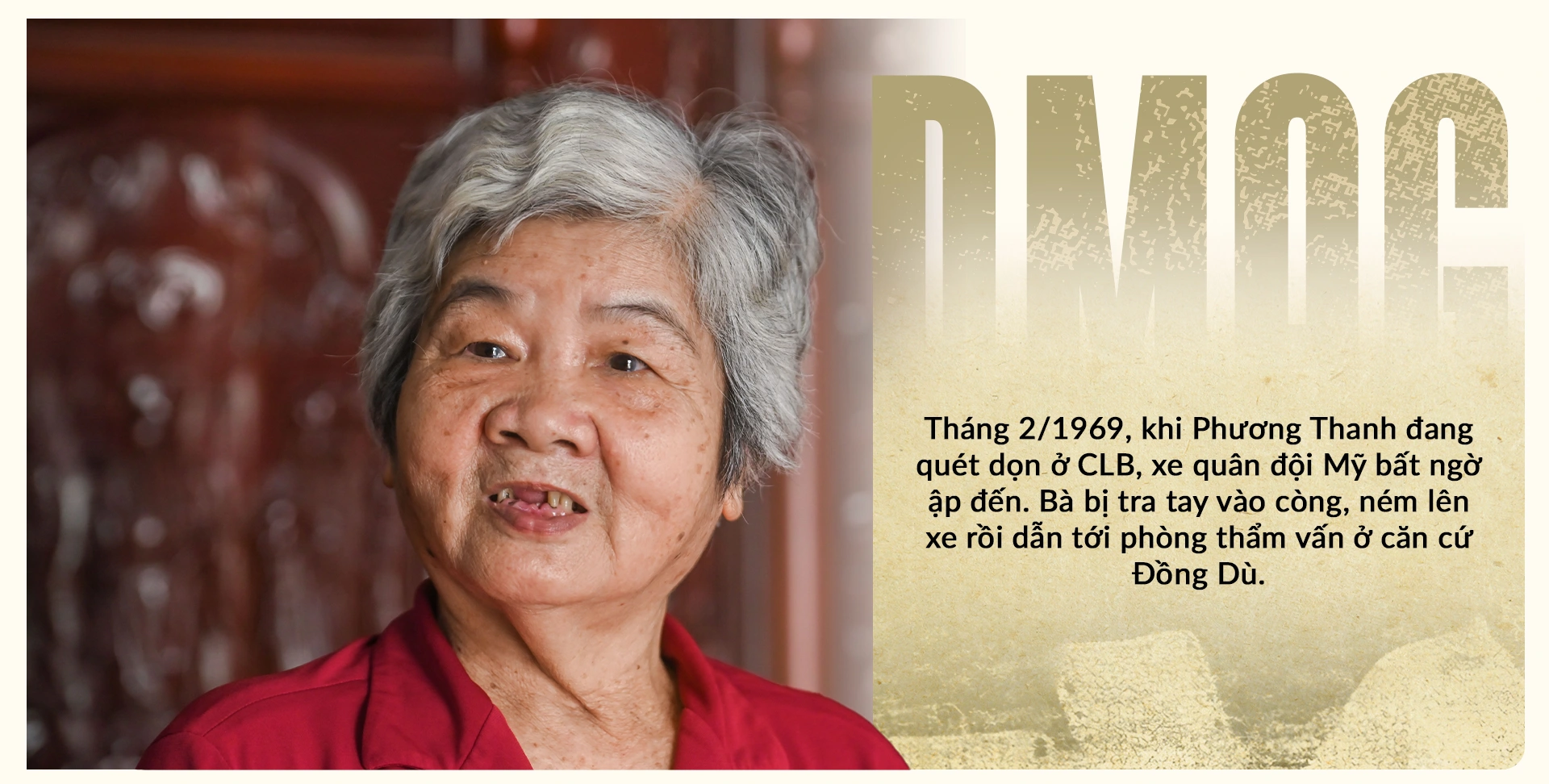
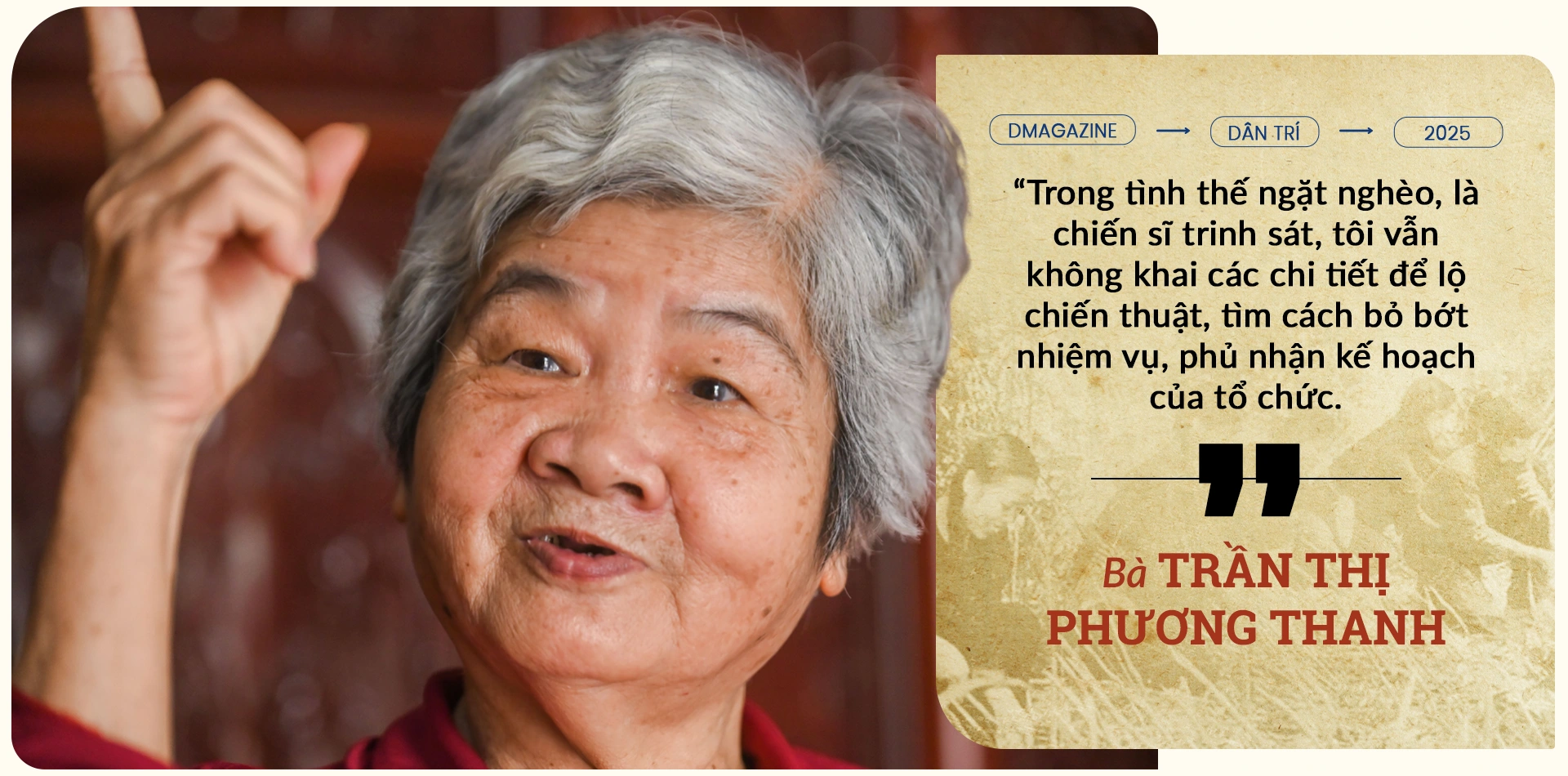
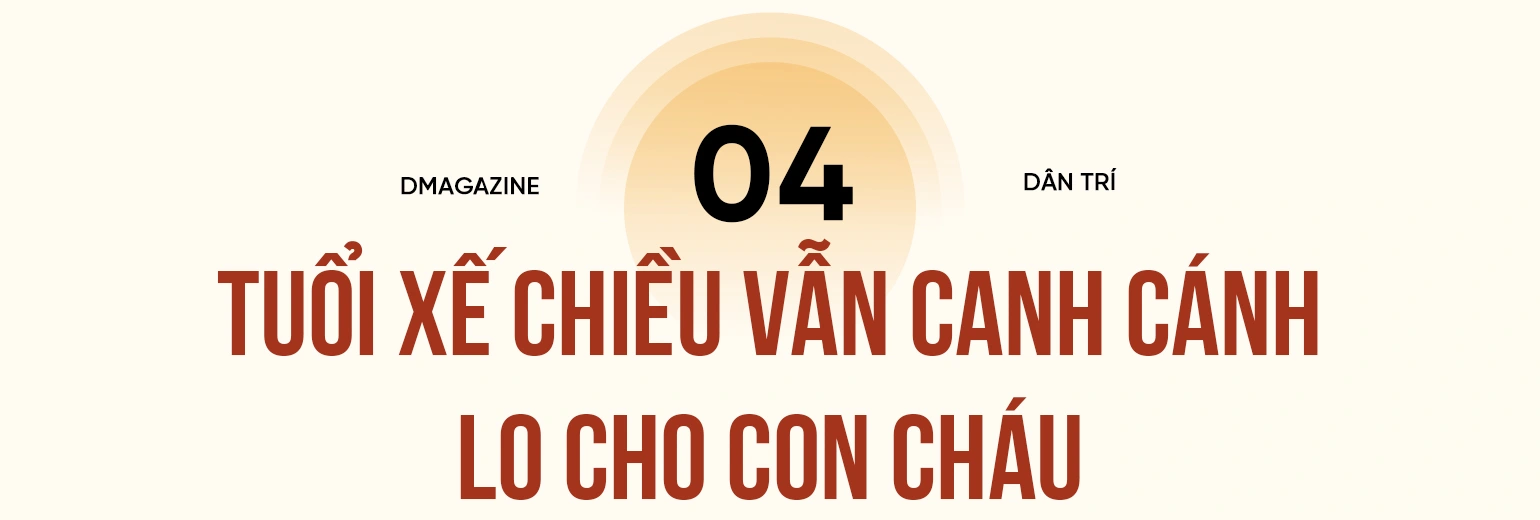
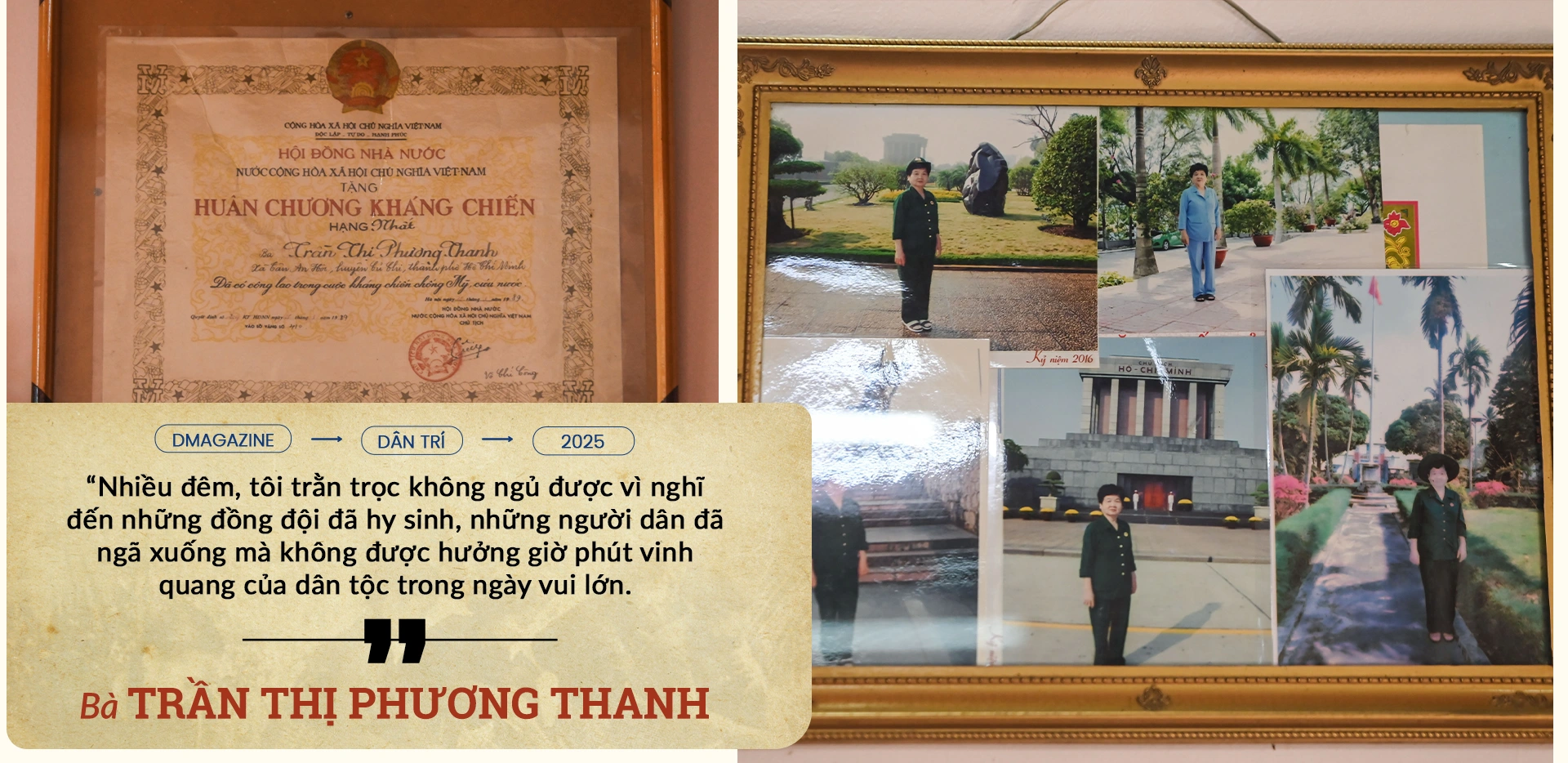
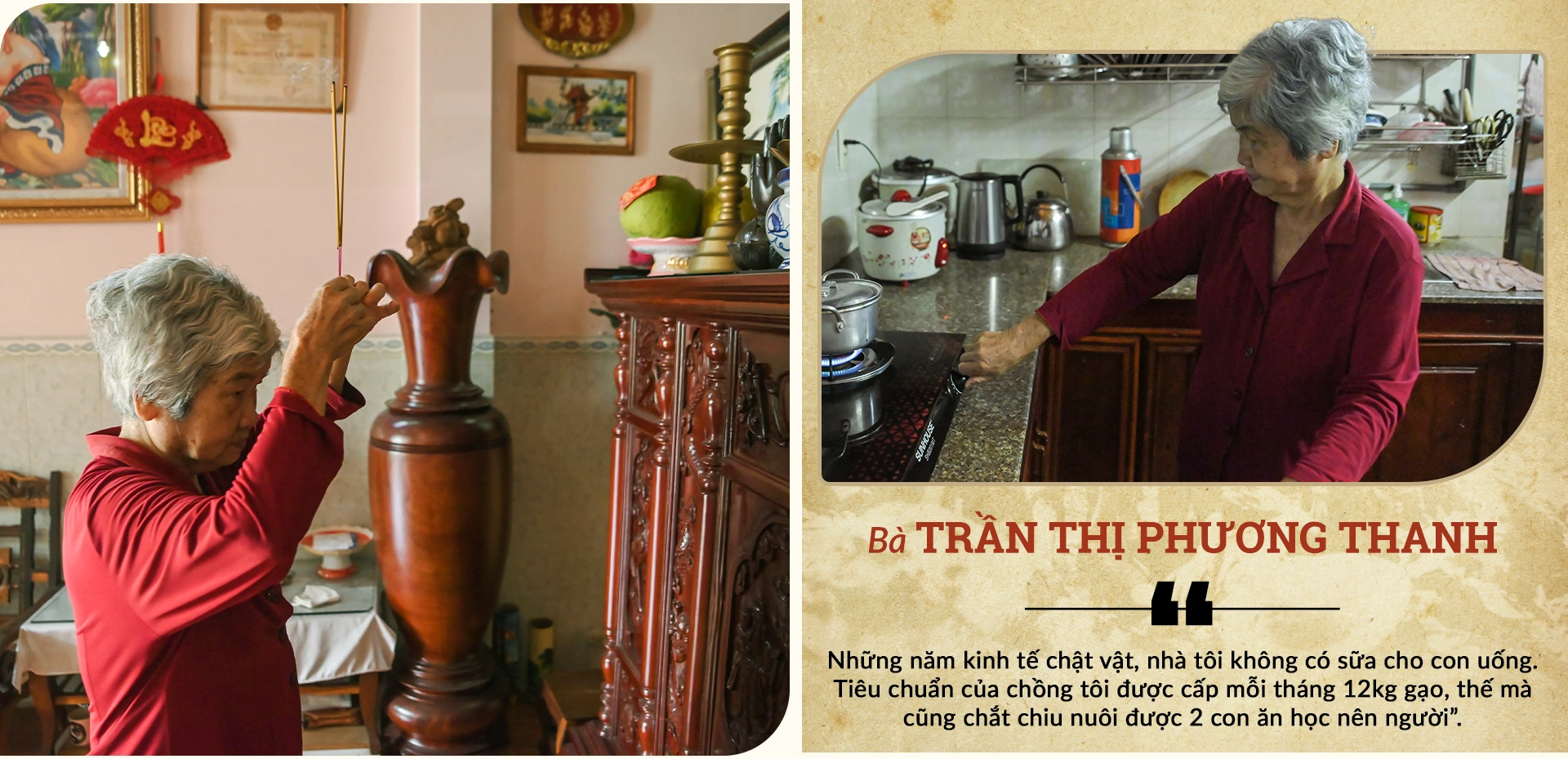



![[Photo] Prime Minister Pham Minh Chinh meets with representatives of outstanding teachers](https://vphoto.vietnam.vn/thumb/1200x675/vietnam/resource/IMAGE/2025/11/15/1763215934276_dsc-0578-jpg.webp)












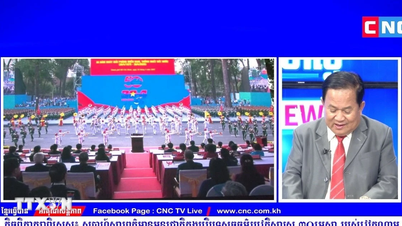



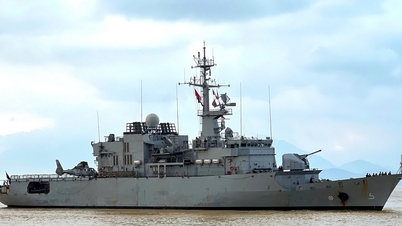


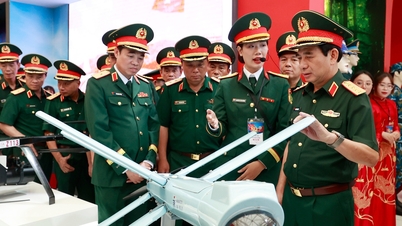
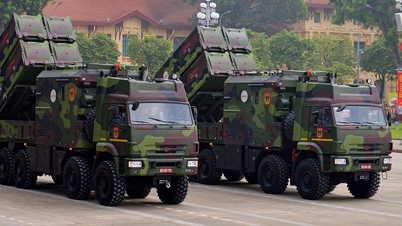
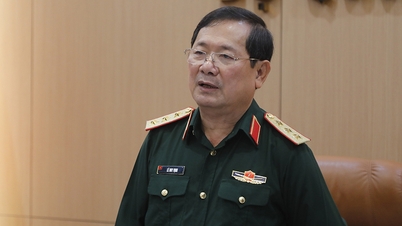















































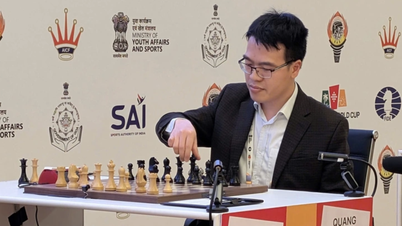









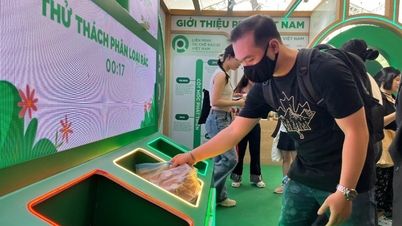


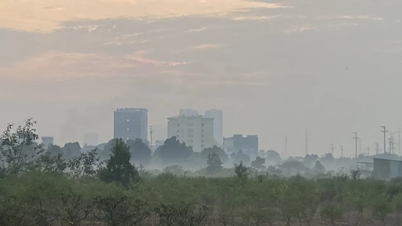






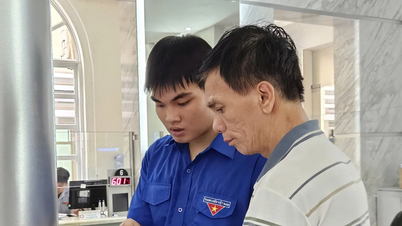
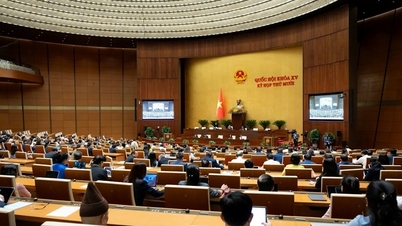














Comment (0)